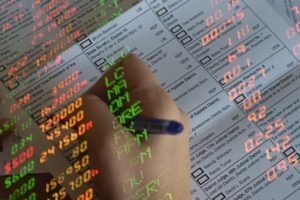How Elections May Affect The Economy
The 2016 presidential election has been a roller coaster unlike any in recent memory. Amidst the drama, you might be wondering how the outcome will affect the economy and your financial future.
You’re not alone.
In a recent BankRate poll, 61% of Americans said they think the election is the greatest threat to our economy over the next six months[i]. That number is more than double the number of people concerned about terrorism, struggling overseas economies, and stock market decline — combined.
We recognize that you and other people may be concerned or confused, so we wanted to share some perspective and historical information to help you better understand where we stand. Of course, no one can predict the future. But, we think that by looking back, you will gain a better view of what may be on the horizon.
What does history tell us about presidential elections?
Generally speaking, the markets perform well in election years. Since 1960, 12 of 14 presidential election years have ended with the S&P 500 delivering positive returns. The only two that didn’t were 2000 and 2008, where the dot-com crash and beginning of the Great Recession, respectively, drove markets down[ii].
Although election years almost always provide positive returns, determining which party is better for investments is a challenge. Looking at S&P 500 returns since John F. Kennedy’s term began in 1961, returns averaged 13.29% with a Democratic president and 8.71% with a Republican. But, the highest 4-year returns happened under Gerald Ford, a Republican[iii].
The reality is that no president operates in a vacuum, or controls market behavior. An incredibly complex mix of geopolitical and economic forces combines to affect market performance during each president’s term. Ultimately, no one can predict how an individual election will affect the economy. But no president is able to single-handedly drive or destroy the economy. No matter what happens on November 8th, we are all part of an interconnected global marketplace, where many factors beyond the American president determine what the future holds.
So what can you do?
- Tune out noise from the media.
Scary headlines screaming about doomsday can be unnerving to even the most even-keeled investor. But, the media — and in particular television — can benefit by fueling people’s concern. In fact, if you look at CNBC, viewership peaks when the markets are low and wanes when they perform well[iv]. Headlines might attract your attention, but they don’t predict market behavior.
- Keep a long-term view.
The markets may experience some turbulence in the coming months. But, these short-term fluctuations shouldn’t affect your ability to achieve your lifelong goals.
- Call us when you want to talk.
You don’t have to face your uncertainty alone. If you have questions and concerns, we want to help you make sense of this environment.
Ultimately, nothing lasts forever — and the climate surrounding our presidential election will soon fade. Remember, we’re all in this together. And we’re always here to offer the support and guidance you need throughout your financial life.
2 https://www.hartfordfunds.com/dam/en/docs/pub/funddocuments/brochures/MAI040.pdf
3 https://www.hartfordfunds.com/dam/en/docs/pub/funddocuments/brochures/MAI040.pdf
4 https://www.hartfordfunds.com/dam/en/docs/pub/funddocuments/brochures/mf916.pdf

